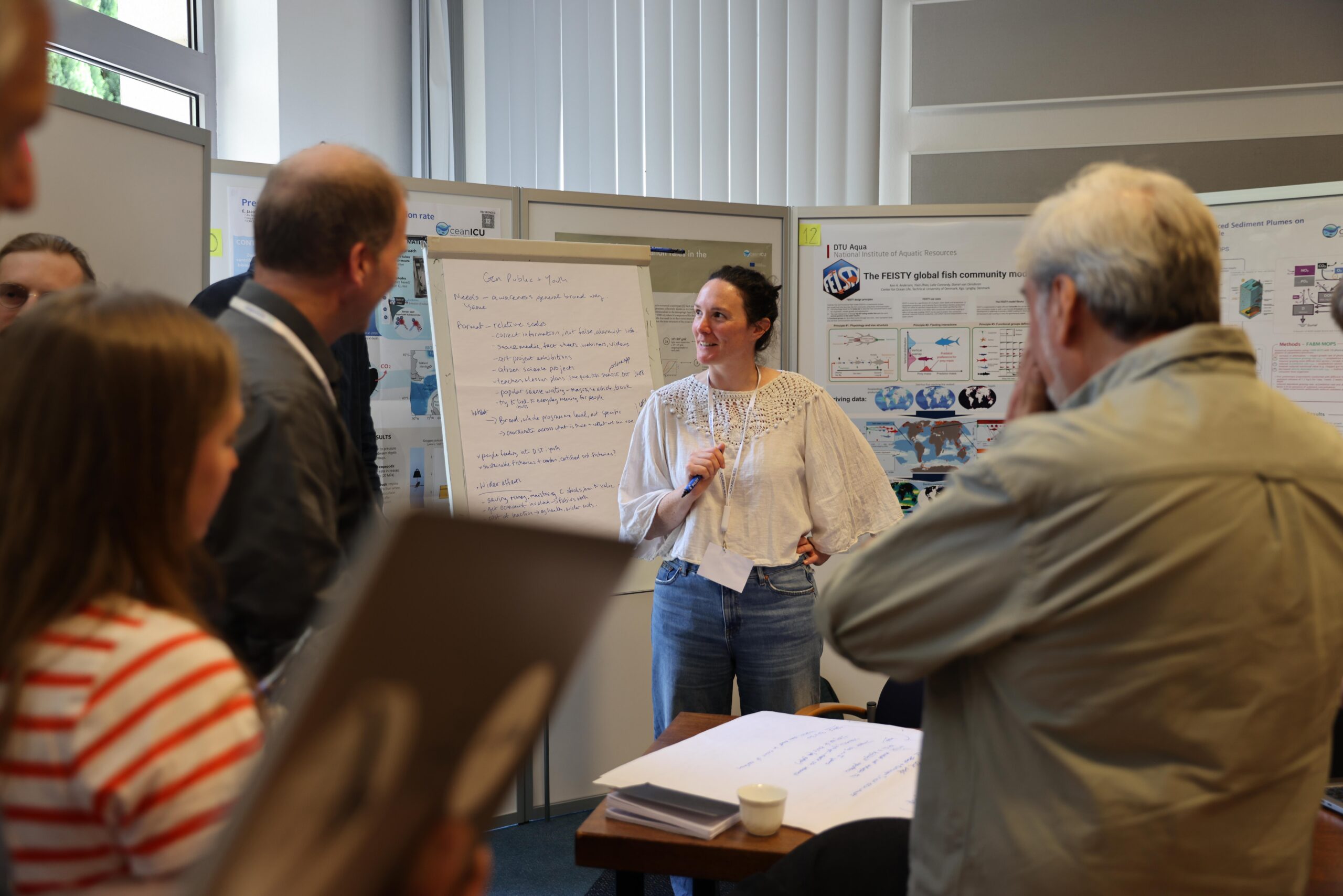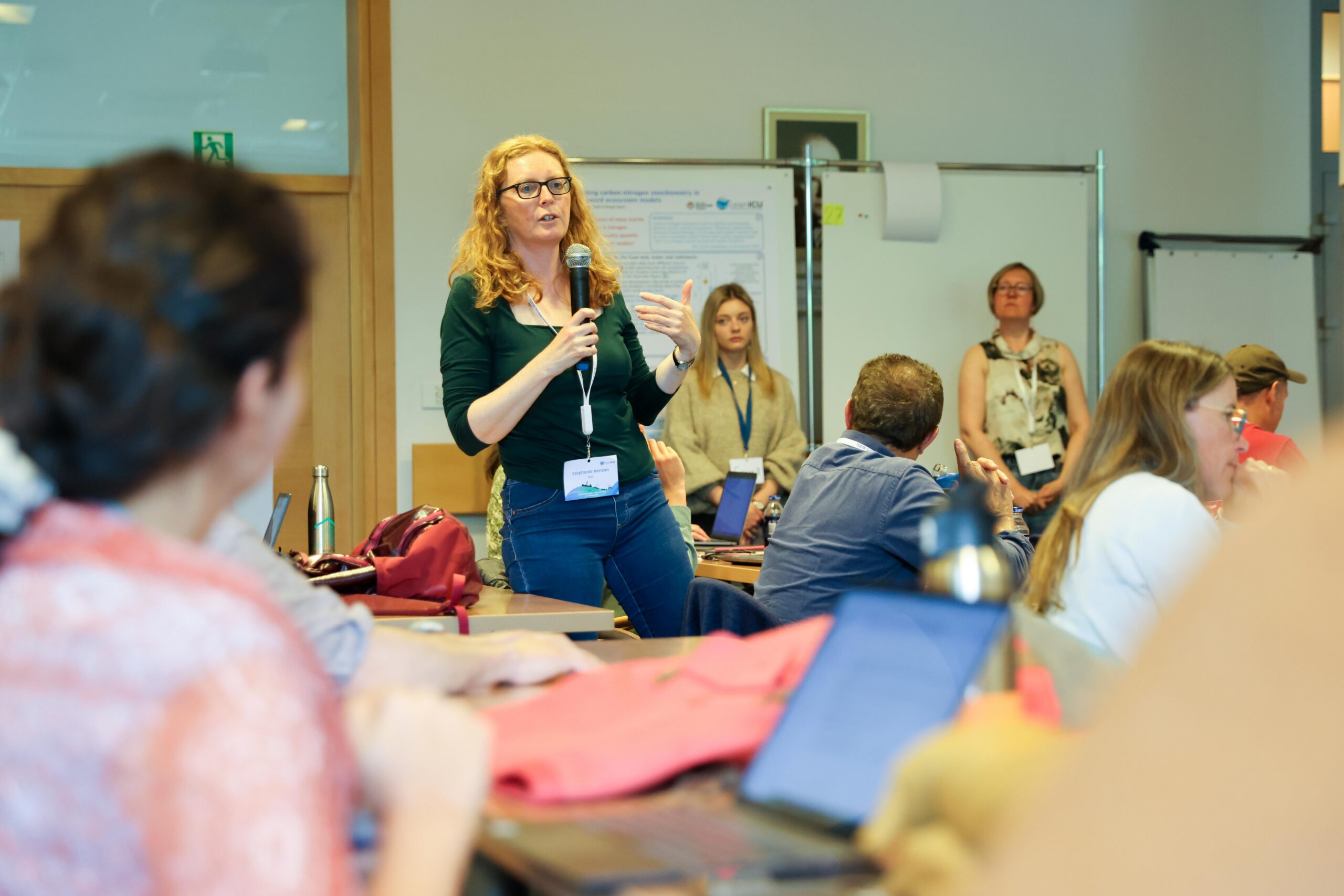The OceanICU investigation is broad with many threads in support of an overall objective to fill fundamental knowledge gaps concerning the biological carbon pump. As the project approaches its third birthday at the end of November, a lot of work has been delivered and results are being published. So how do we synthesise the work to understand what we now know that we did not know before the project started? And how can we best disseminate this information to achieve the desired impact? Enter the concept of Key Performance Indicators (KPIs) and OceanICU’s team of science and policy experts.

When the OceanICU concept was initially developed, a total of 28 KPIs were identified and during the early phase of the project, these KPIs were the beacons we tracked against. By the midpoint of the project, with more results being delivered and the consortium preparing to gather in person for the Annual Meeting in Poland, an opportunity presented itself. Why not group the catalogue of KPIs into six thematic clusters and create cross-discipline, cross-work package groups to look at how to best develop a targeted impact strategy around each one? The idea was well received by the Scientific Advisory Board and the consortium, and the work began. Since kicking off the exercise, the cluster teams have had follow up meetings and the communication, dissemination and exploitation strategies for each cluster have taken shape.
The process has not only stimulated good insights for dissemination pathways, but has also fostered synergies and provided an opportunity for early career researchers (ECRs) to work with senior scientists from different institutes around a common goal of understanding how results from the OceanICU investigation find their way from the project to policy and wider society and inspire positive impacts.
An overview of the clusters including the target stakeholder groups and intended impact follows:
1. Biology in Carbon Cycle
Material and activity (workshops, events, papers) in support of this cluster will be based on research focussed on understanding key biological carbon cycling processes, and the corresponding mathematical representations that will be incorporated into models. Targeted stakeholders include Biologists & Biodiversity experts interested in the role of organisms in BCP and Policy Makers involved in setting emission targets. The intended impact will result in better coordination of existing activities and future calls focussed on clearly establishing the role of ocean biological processes in the global C cycle.

2. Global Carbon Cycle
This cluster has two distinct pathways. The first relates to research focussed on reconciling multiple estimates of ocean carbon uptake presented in the Global Carbon Budget and will be of interest to Policy Makers involved in setting emission targets including GST, EU; CMIP stakeholders (particularly the physical modelling community), IPCC scientists, World Ocean Assessment scientists and scientists working within the IOC and WMO (G3W). The intended impact will result in raising awareness of the ocean carbon cycle and its role in climate mitigation.
The second pathway concerns the production of key data products; dataset include more than carbon—covering oxygen, nutrients, salinity, and trace gases. Audiences that will be targeted for dissemination are Biologists & Biodiversity experts interested in the role of organisms in the biological carbon pump, including SCOR 4D-BGC working group and the fish modelling community. The CMIP, Global Carbon Budget community and the operational modelling community will also be interested in the work covered in this cluster. It’s intended impact will be the widespread use and integration of GLODAP’s multiparameter data across and modelling communities, and we will see more transparency, reproducibility, and targeted collaborations through open code and data access.

3. Ocean and Climate Policy
There are also two pathways for dissemination activities in this cluster.
The first pathway also concerns research focussed on understanding key biological carbon cycling processes, and the creation of mathematical representations of these incorporated them into models; and its dissemination outputs and activities will target Policy Makers involved in setting emission targets including representatives of DG MARE, Ocean Carbon Cycle scientists, key decision-making Fora: UNFCCC, UNOC3, UNFCCC, BBNJ, CBD. Intended impact will inform and influence international discussions and decisions on ocean carbon and climate mitigation and funding needs and it will strengthen the integration of scientific findings from OceanICU on key biological carbon cycling processes into international ocean-climate decision-making.
The second pathway concerns research focussed on reconciling multiple estimates of ocean carbon uptake presented in the Global Carbon IPCC, IPBES scientists and will be of interest policy makers and scientists within world Ocean assessments and the following groups and/or initiatives: CO, UNOC3, UNFCCC, BBNJ, CBD. Its impact will demonstrate an
increased awareness and understanding among EU stakeholders of the biological carbon pump (BCP) and anthropogenic impacts on ocean carbon, thus guiding policy, research, and funding priorities.

4. Knowledge Gaps
This cluster is in support of the work being conducted to address large scale and important questions in ocean carbon cycle science and the key results which will be published. Dissemination activity and material will be targeted at carbon cycle scientists and members of the science policy community. The Intended impact Inform the ongoing scientific debate around the key role ocean biological processes play in the Global Carbon cycle and how best to quantify ocean carbon uptake.
5. Industrial Impacts and Youth Engagement
This cluster has multiple threads and stakeholders in fishing, mining, education and ocean literacy and concerns the engagement work OceanICU is doing with industry and wider society. Its intended impacts are as follows:
- Sustainable fisheries and carbon e.g. certified sustainable fisheries based on stocks should factor carbon stocks and their impacts into decisions and consider associated costs.
- Managers use research on ocean carbon contributions and uncertainties to guide decisions and address tool gaps (Decision Support Tool).
- Managers comply with ISA/ATC regulations and regional plans while applying broad, evidence-based guidance.
- Fisheries and sustainability stakeholders integrate carbon considerations into decision-making.
- European Youth and any citizen use the OceanICU Decision Support Tool on the EDITO platform to get an understanding of the impact of human activities on ocean carbon that can inform their decisions.
- Public and youth factor ocean carbon and its importance into their understanding of environmental issues and their daily decisions
6. Coastal Carbon
There are also two pathways for dissemination activities in this cluster.
The first pathway also concerns research focussed on understanding key biological carbon cycling processes, and the creation of mathematical representations of these incorporated them into models; and its dissemination outputs and activities will target Policy Makers involved in setting emission targets including representatives of DG MARE, Ocean Carbon Cycle scientists, key decision-making Fora: UNFCCC, UNOC3, UNFCCC, BBNJ, CBD. Intended impact will inform and influence international discussions and decisions on ocean carbon and climate mitigation and funding needs and it will strengthen the integration of scientific findings from OceanICU on key biological carbon cycling processes into international ocean-climate decision-making.
Material and Channels
Talks at major events, webinars, policy briefs, contributions to relevant initiatives and reports, the publication of science papers and more will be the channels by which the specific results from each of these clusters will be disseminated, and this process will be shepherded along within the respective teams monitoring each cluster.
